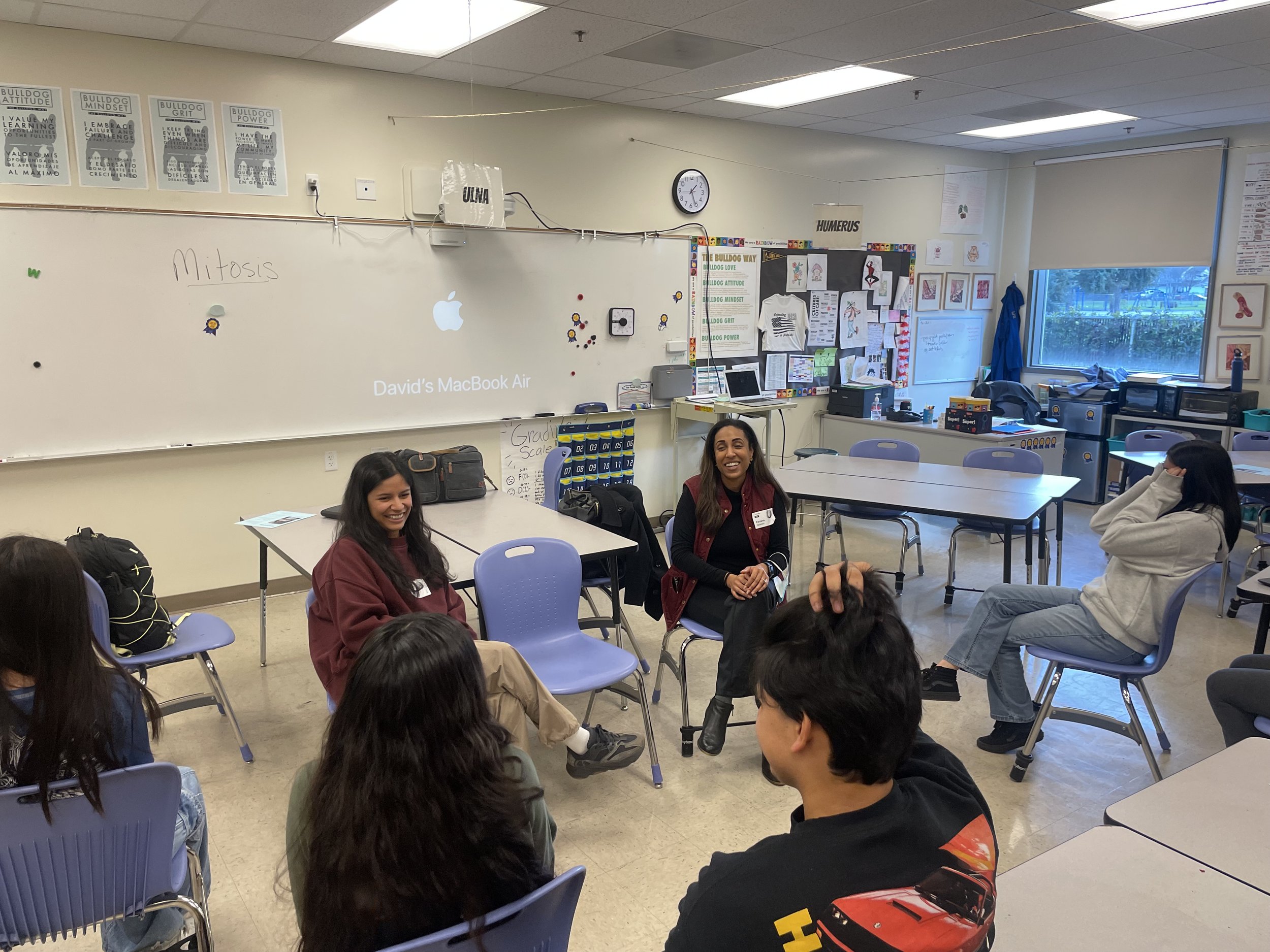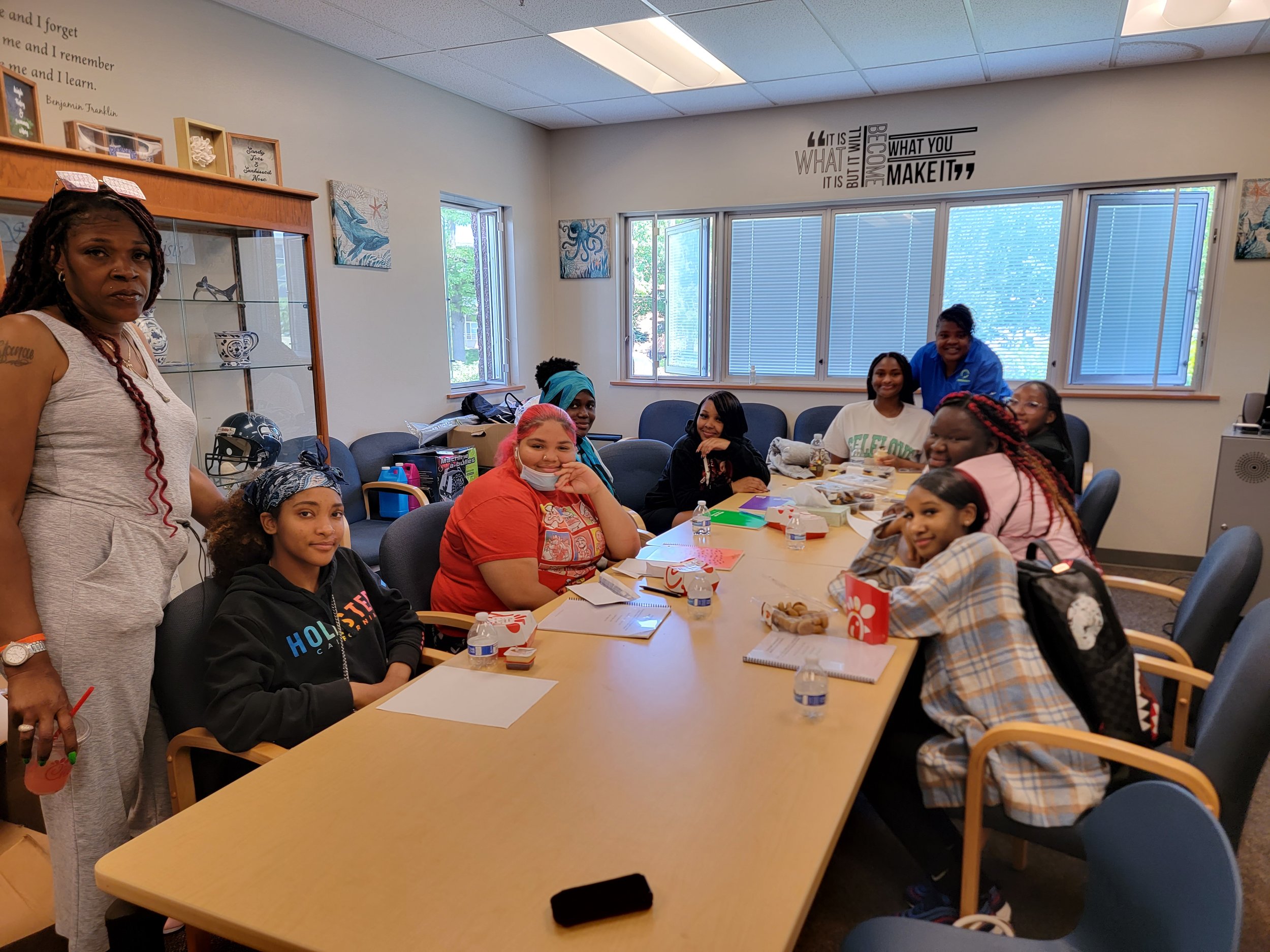Overview

Program
What is TRANSFORM?
Trauma and Racism Addressed by Navigating Systemic Forms of Oppression with Resilience Methods (TRANSFORM) is a holistic and culturally responsive approach to addressing levels of stress that result from traumatic experiences, including racism. TRANSFORM is primarily informed by the psychological framework of radical healing in communities of color (French et al., 2020). TRANSFORM teaches skills on how to name, resist, respond, and thrive in the face of experiences with trauma, racism, and the intersection of the two, as well as promote racial-ethnic pride, racial literacy, and healing among BIPOC youth.
Who is TRANSFORM designed for?
TRANSFORM is designed for child serving settings (schools, juvenile justice) and was developed in partnership with school-based and juvenile justice mental health professionals, non-mental health professionals in both settings, and BIPOC youth and families with lived experiences. The current version of the intervention is 10-11 weeks with each session lasting approximately 50-60 minutes.
TRANSFORM is designed to be conducted with a group of 4-7 students by an individual committed to a strength-based, anti-racist, trauma and resiliency-informed approach. TRANSFORM leaders who implement the intervention can include clinicians and non-clinicians such as: school counselors, school psychologists, school-based mental health therapists, and school- based or juvenile justice line staff professionals. For facilitators without formal mental health training, a mental health professional would be involved in the implementation process. TRANSFORM leaders will be required to complete an interview, screening, and complete a training to assess readiness.
In the current version of TRANSFORM youth participants must identify as Black, Indigenous, and People of Color in grades 6-12th (initial piloting of the intervention will focus on 9th-12th grade youth). Youth must endorse at least 1 general trauma or race specific trauma and desire to be anti-racist.

Ideal Sites & Facilitators
Sites
At this phase of evaluation, the schools and organizations that are ideal for implementing TRANSFORM are sites that value social justice, desire to be anti racist, and want to increase staffs’ skills and confidence to engage in conversations about race, racism, and intersecting forms of oppression. We expect sites to demonstrate most if not all of the following qualities:
Commitment to Equity and Inclusion: The site should demonstrate dedication to an anti-racist environment that fosters equity and inclusion for all students and staff. This commitment should be reflected in the site's policies, practices, and/or culture.
Supportive Climate: The site should foster a supportive and safe environment where students and staff feel valued, respected, and empowered to express themselves. This includes addressing any incidents of racism and discrimination promptly and effectively.
Diverse Staff and Leadership: The site should have a racially and ethnically diverse staff and/or be striving to increase racial-ethnic diversity reflective of, yet extending beyond, the racial and cultural backgrounds of the student population. Having diverse role models can provide students with representation and support their adjustment and aspirations.
Mental Health Professional(s) On-Site: The site should have access to at least one licensed mental health professional who could support students that express mental health concerns and/or severe race-related stress or trauma.
Sustainability Plan: The site should have a sustainability plan in place to ensure that TRANSFORM, or the skills learned from the TRANSFORM program, can continue to be effectively utilized by site staff over time. Sites should meet with the TRANSFORM team to discuss a plan.
Facilitators
At least one TRANSFORM facilitator implementing the group will be from your site, not from outside your organization. As the skills, knowledge, and approach is intended to live on beyond the 11 week program. Facilitators preferably share racial, ethnic, or cultural backgrounds with the students and are trusted adults who students feel safe with. Overall, we expect facilitators to demonstrate most if not all of the following criteria:
Empathic Awareness: Facilitators should accept, value and ideally understand the cultural traditions and customs of individuals from differing racial and ethnic groups. They should also be able to connect emotionally with youth and create a safe and supportive environment for those facing race-related stress and trauma.
Critical Consciousness: It's crucial for facilitators to have the ability to recognize and analyze systems of oppression along with skills and/or desire to disrupt racism, discrimination and systems of oppression for minoritized groups.
Willingness to Learn: Facilitators need a willingness to learn and deepen their understanding of self and others. They must be self aware and open to discussing their own identity, privilege and heritage which will be a necessary asset as they support youth in their own process. All facilitators begin by participating in an interactive TRANSFORM facilitator training with other adults as they learn research-informed and de-colonized practices to lead the groups.
Cultural Humility: Facilitators must recognize the dynamic and lifelong process of self-reflection, personal critique, and acknowledging one’s own biases. They must also acknowledge the shifting nature of intersecting identities with ongoing curiosity. Cultural humility involves understanding the complexity of identities — that even in sameness there is difference — and that it is impossible to be fully competent in the evolving and dynamic nature of another person’s experience.
Effective Communication Skills: Facilitators should be able to communicate effectively with youth from diverse backgrounds. This includes active listening, clear and concise language, and the ability to facilitate open and respectful discussions about difficult topics. This includes modeling vulnerability and cultural humility appropriately.
Commitment to Equity and Social Justice: Facilitators must be dedicated to promoting equity and social justice. They should be actively working to challenge systemic racism, disrupt harm, and empower youth to advocate for themselves and others.
Example TRANSFORM Schedule

Future partnership goals for piloting TRANSFORM:
We aim to partner with groups who value social justice, desire to be antiracist, and desire to increase their racial literacy. We train individuals to deliver the intervention within school and community based sites. Partner sites can request to have staff members trained to implement TRANSFORM or utilize a trained TRANSFORM facilitator. Youth and facilitators who participate in the intervention are asked to complete a brief pre and post questionnaires, and they have the option of participating in a focus group at the end of the intervention to provide feedback. There is some flexibility based on site interest and needs. Student participants will be compensated in the future small scale pilot. Please email our team if you are interested in more information.
